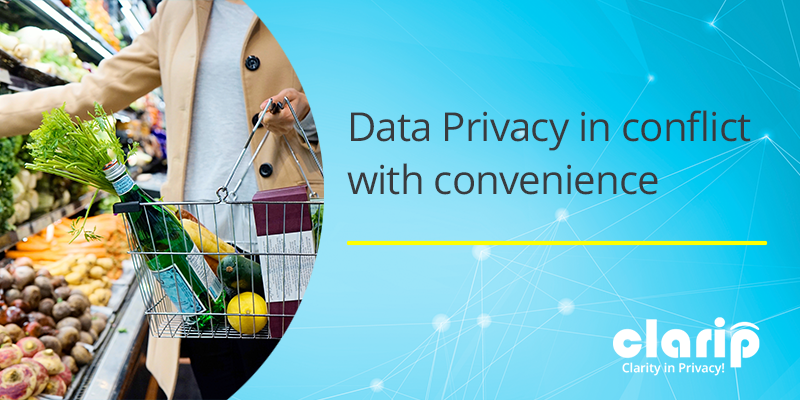Data Privacy in conflict with convenience

A Whole Foods Market in Glover Park in Washington, D.C. now allows customers to grab their groceries and “Just Walk Out.” Just Walk Out is a shopping surveillance technology that they have developed that tracks a consumer’s every move within the store, including every item they pick up, put down, put in their pocket, or even consume in the store.
It allows consumers to go in, get exactly what they need and walk out without having to wait in line. It is undeniably convenient and time-efficient as even self-checkout often has lines. Once you get to a self-checkout kiosk you still have to scan each item, or look it up. Sometimes you have to weigh the item as well.
Just Walk Out is as seamless as shopping on Amazon, which is appropriate as Whole Foods was purchased by Amazon and the current direction they are going in shows the influence the new owners have on the company. On Amazon, you fill your digital cart with everything you want, then check out and your items will be delivered to you. Just Walk Out replicates the minimization of transaction costs that are one of the top draws of shopping online. You enter the store, grab what you want, then walk out.
Up to a few hours after you leave the store, you get charged for everything you purchased and get a receipt that shows everything you purchased and notably the time you spent shopping. Notifying the shopper the amount of time that they spent shopping is no accident. That is a real selling-point of Just Walk Out, the time savings. Who doesn’t love saving time?
In this way, Whole Foods wants to shift your focus on the perk, how little time you spent in the store, rather than the downside of their approach, the complete lack of privacy during the shopping experience. If you read between the lines at all, it is obvious. Whole Foods is only able to tell you how little time you spent in the store because they tracked your every movement in the star. They only correctly charged you for the apple you put in your pocket, because you were recorded putting it in your pocket.
For liability purposes, Whole Foods will have to have a data retention policy to handle disputes about charges. That means they will have a justification for the necessity of processing your data for perhaps years, however long a consumer can dispute their charges.
Consumers will be left making the choice between preserving their privacy and saving time. It is typically a stacked competition because the time-savings is quantifiable and concrete in a way the preservation of privacy isn’t. Their receipts will tell them how long they spent in the store and their experience will prove to them that they are generally getting home faster. On the other hand, they may not have an articulable problem with being observed in the grocery store. After all, it saves them time.
Clarip saves companies time without making huge privacy sacrifices. We provided automated data subject request fulfillment and data mapping. We perform website scans, enable vendor and consent management and do much, much more. Learn more at www.clarip.com or call us at 1-888-252-5653.
Email Now:
Mike Mango, VP of Sales
mmango@clarip.com

 Data Risk Intelligence
Data Risk Intelligence Automated Data Mapping
Automated Data Mapping Do Not Sell/Do Not Share
Do Not Sell/Do Not Share Cookie Banner Solutions
Cookie Banner Solutions Consent & Preferences
Consent & Preferences Data Rights Requests
Data Rights Requests
